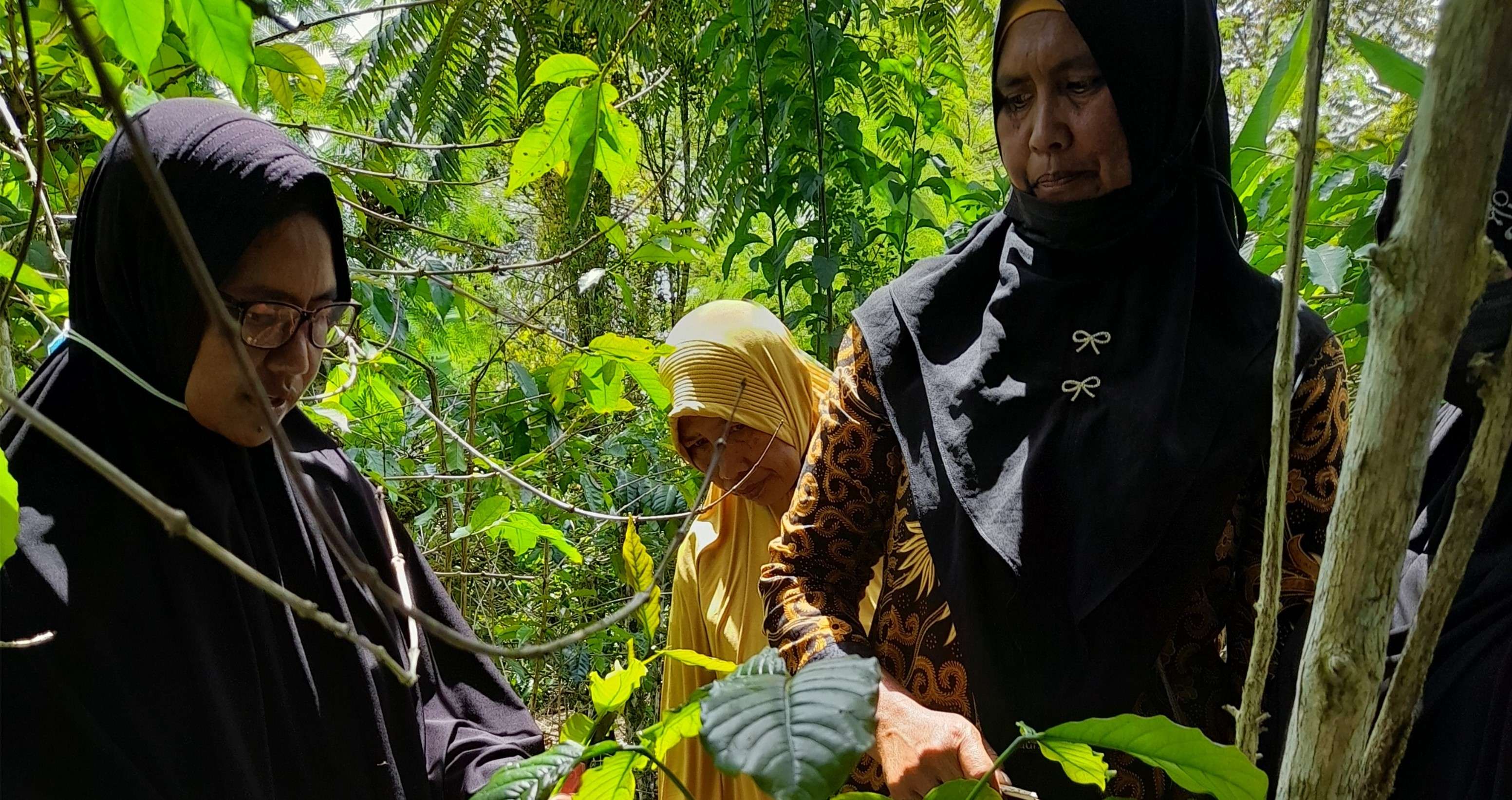
Climate Change Adaptation for Women Coffee Farmers
Lestari Sustainable Development Consultants
Ratnawati (Ratna) is a farmer and community leader from the Benteng Alla Village in Enrekang Regency, Indonesia. She works with a coffee farmer’s cooperative in her village and is Chair of the Mentuangin Women Farmers Group.
Agriculture is considered among the most vulnerable sectors to climate change and unpredictable climatic conditions in the region present many challenges for local famers. Ratna didn’t know which types of coffee were suitable for different climatic conditions and that the spacing of coffee plants could affect production levels. This impacted stock levels and meant that many requests went unfilled. Her business and income levels suffered as a result.
Women farmers in the area face additional barriers to accessing the resources and information essential for climate change resilience. They face greater challenges in adapting to changing climatic conditions due to less decision-making power, fewer productive assets (e.g., land, financial capital), and lower access to information and services compared to men farmers.

Funded by the FIT, Lestari Sustainable Development Consultants and their local partners the Indonesian Coffee and Cocoa Research Institute, tested an innovative solution that involved disseminating newly developed drought-tolerant coffee varieties using gender responsive climate-smart coffee farming methods. This was aimed at small-scale coffee farmers in the area with a particular focus on women farmers. The innovation employed women as agents of change to increase their access, technical skills, decision-making capacities, and climate resilience. The gender responsive farming methods included ensuring women had equal access to training and farming needs and were able to fully participate. This was achieved through demonstration plots used for illustrating and practicing new farming techniques, as well as mentoring and capacity building sessions aimed at enhancing leadership and decision-making for women farmers.
Central to the innovation were gender-responsive coffee farming techniques constituting new strategies and coping mechanisms essential to a gendered approach to climate change resilience. This meant that from the outset, coffee was planted in a way that accommodated women farmers. For example, providing sufficient space between plants not only improves coffee production, but also allows enough space so women can prune and harvest more comfortably.
The test also involved developing technical skills such as recognizing various coffee flavours and maintaining coffee quality with good post-harvest treatment and processing. Ratna learned techniques that allowed her to manage and keep coffee for longer periods which increases coffee stores, income, and food security.
The innovation produced many positive impacts for the community including improved gender equality, increased coffee production, greater income and food security, and strengthened coffee climatic resilience. The women-focused dissemination of knowledge enhanced the technical capacities of women farmers, increased their confidence in decision-making, and encouraged greater participation in community dialogue. Additionally, when both husband and wife attended the gender focused training sessions, family businesses and household gender dynamics were positively impacted.

Since participating in the program, Ratna’s confidence in leading the 25 members of the women farmers group has increased, especially when conveying technical information and climate-smart farming techniques. As a result of the innovation, she has greater confidence to participate in public decision making and express her opinions in larger community forums. She is also transferring knowledge intergenerationally, teaching her six children (all of whom are able to stay in school thanks to her success) how to grow and process good coffee.


